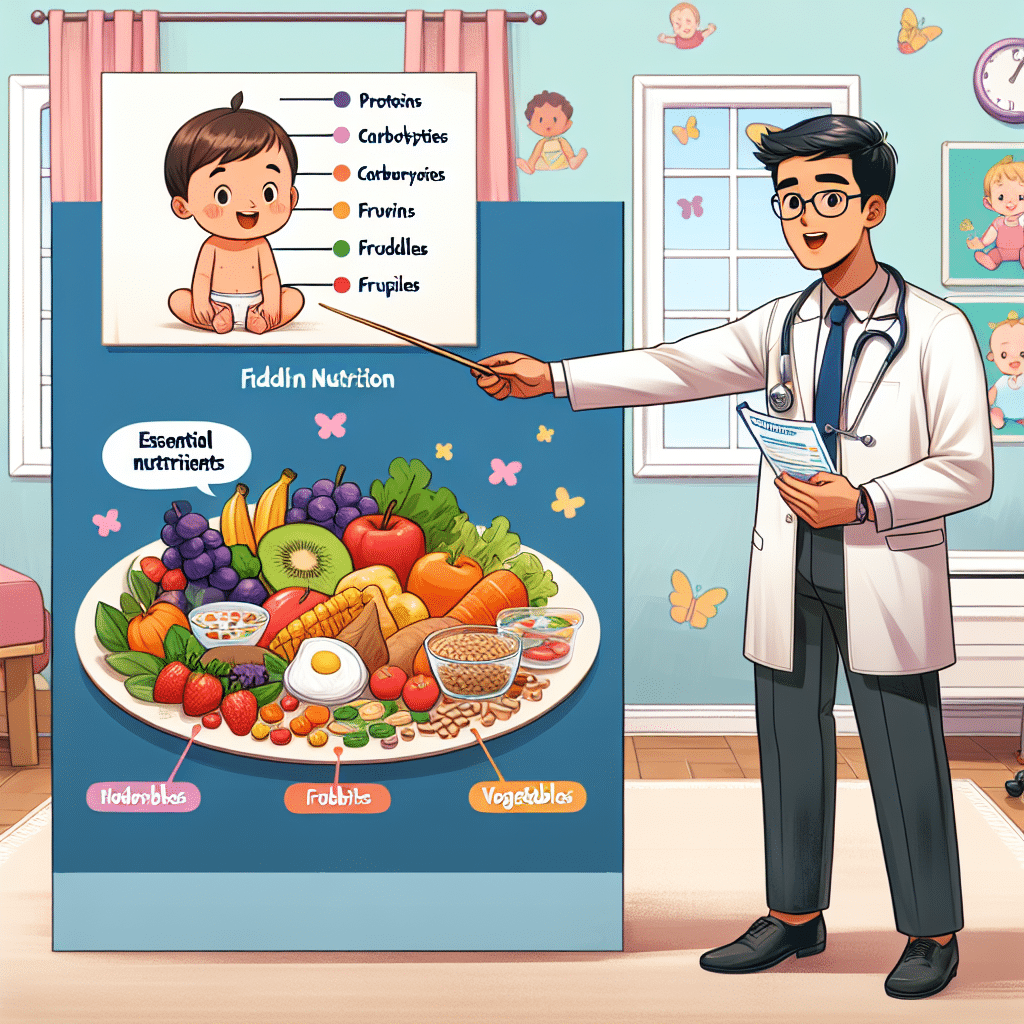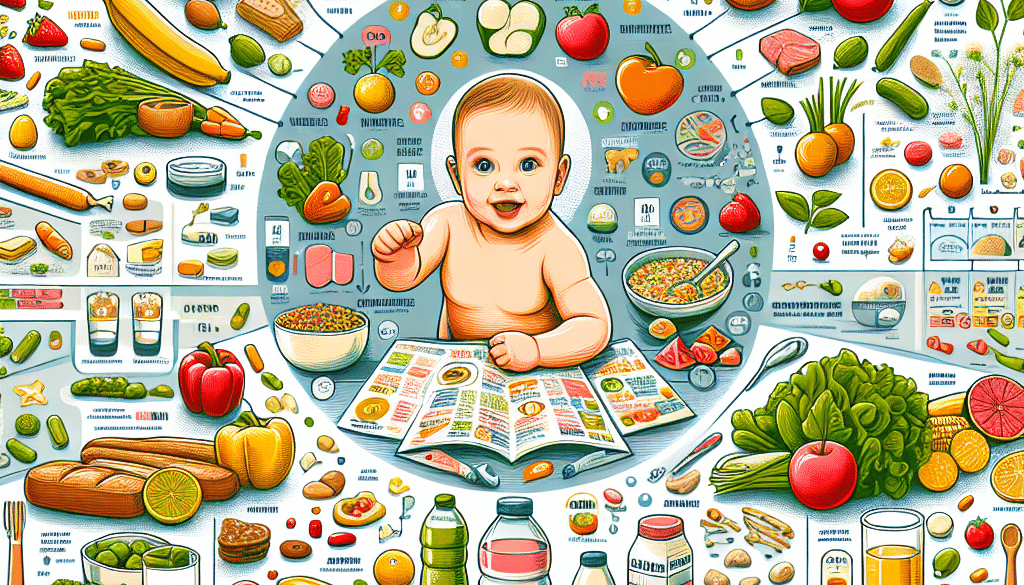Infant and Toddler Nutrition: Essential Nutrient Focus
-
Table of Contents
- Infant and Toddler Nutrition: Prioritizing Essential Nutrients
- Understanding the Nutritional Needs of Infants and Toddlers
- Macronutrients: The Building Blocks
- Micronutrients: Vitamins and Minerals
- Feeding Practices and Dietary Patterns
- Introducing Solid Foods
- Nutrition for Toddlers
- Challenges and Considerations in Infant and Toddler Nutrition
- Addressing Picky Eating
- Food Insecurity and Nutrition
- Case Studies and Statistics
- Conclusion: Key Takeaways for Optimal Infant and Toddler Nutrition
- ETChem’s Protein Products for Infant and Toddler Nutrition
Infant and Toddler Nutrition: Prioritizing Essential Nutrients

Proper nutrition during infancy and toddlerhood is a cornerstone for lifelong health. The early years of a child’s life are a critical period for brain development, growth, and establishing healthy eating habits. This article delves into the essential nutrients necessary for infants and toddlers, supported by current research, examples, and statistics. Understanding these nutritional needs can help caregivers provide the best start for their children’s health and well-being.
Understanding the Nutritional Needs of Infants and Toddlers
Infants and toddlers have unique nutritional requirements that differ significantly from those of older children and adults. Their rapid growth and development demand a higher intake of certain nutrients relative to their body size. Here, we explore the key nutrients that should be the focus of infant and toddler diets.
Macronutrients: The Building Blocks
- Proteins: Essential for growth, tissue repair, and immune function. Breast milk or formula provides adequate protein for infants, while toddlers can obtain protein from dairy products, meats, and legumes.
- Fats: Vital for brain development, energy, and absorption of fat-soluble vitamins. Sources include breast milk, formula, and, for toddlers, whole milk, avocados, and fish.
- Carbohydrates: The primary source of energy. Breast milk and formula contain lactose, while toddlers can get carbohydrates from fruits, vegetables, and whole grains.
Micronutrients: Vitamins and Minerals
- Iron: Crucial for cognitive development and preventing anemia. Iron-fortified cereals and pureed meats are good sources for infants and toddlers.
- Calcium: Necessary for bone and tooth development. Dairy products and calcium-fortified foods are excellent sources.
- Vitamin D: Supports bone health and immune function. Sunlight exposure and fortified foods can help meet requirements.
- Zinc: Important for growth and immune function. Present in breast milk, formula, and a variety of foods for toddlers.
Feeding Practices and Dietary Patterns
Feeding practices for infants and toddlers should evolve as they grow. Breastfeeding is recommended exclusively for the first six months, with continued breastfeeding alongside complementary foods until at least 12 months. For non-breastfed infants, iron-fortified infant formula is a suitable alternative. As infants transition to solid foods, it’s important to introduce a variety of nutrient-dense options.
Introducing Solid Foods
Introducing solid foods around six months is a pivotal moment in an infant’s nutritional journey. It’s essential to include iron-rich foods to complement breast milk or formula. Examples include iron-fortified cereals, pureed meats, and legumes. Gradually, a variety of fruits, vegetables, whole grains, and dairy products should be introduced.
Nutrition for Toddlers
Toddlers require a balanced diet that includes a variety of foods from all food groups. Portion sizes should be appropriate for their small stomachs, with meals and snacks scheduled regularly throughout the day. It’s also a critical time to establish healthy eating behaviors and preferences that can last a lifetime.
Challenges and Considerations in Infant and Toddler Nutrition
Despite the clear guidelines, many infants and toddlers do not receive optimal nutrition. Common challenges include picky eating, food insecurity, and exposure to high-calorie, low-nutrient foods. Caregivers must be vigilant in providing nutrient-rich options and creating a positive eating environment.
Addressing Picky Eating
Picky eating is a normal developmental stage for many toddlers. Consistent exposure to a variety of healthy foods without pressure can help children accept a wider range of flavors and textures over time.
Food Insecurity and Nutrition
Food insecurity can significantly impact the quality of nutrition for infants and toddlers. Access to programs like WIC (Women, Infants, and Children) and SNAP (Supplemental Nutrition Assistance Program) can provide crucial support for families in need.
Case Studies and Statistics
Research has shown that early nutrition interventions can have profound effects on long-term health. For example, a study published in “The Lancet” found that children who received adequate nutrition in their first two years had improved academic performance and higher incomes in adulthood. Additionally, the CDC reports that breastfeeding rates have been increasing in the United States, with about 84% of infants starting to breastfeed.
Conclusion: Key Takeaways for Optimal Infant and Toddler Nutrition
Ensuring that infants and toddlers receive the essential nutrients they need is critical for their growth and development. A focus on balanced macronutrients, along with adequate intake of key vitamins and minerals, sets the foundation for a healthy life. Caregivers should be aware of the challenges and actively work to introduce a variety of nutrient-dense foods in a supportive environment.
ETChem’s Protein Products for Infant and Toddler Nutrition
For those looking to supplement their infant or toddler’s diet with high-quality protein, ETChem’s protein products are an excellent choice. Their range of collagen products, including marine, fish, bovine, and chicken collagen, can be seamlessly incorporated into a child’s diet, ensuring they receive the necessary amino acids for healthy development.
About ETChem:
ETChem, a reputable Chinese Collagen factory manufacturer and supplier, is renowned for producing, stocking, exporting, and delivering the highest quality collagens. They include marine collagen, fish collagen, bovine collagen, chicken collagen, type I collagen, type II collagen and type III collagen etc. Their offerings, characterized by a neutral taste, instant solubility attributes, cater to a diverse range of industries. They serve nutraceutical, pharmaceutical, cosmeceutical, veterinary, as well as food and beverage finished product distributors, traders, and manufacturers across Europe, USA, Canada, Australia, Thailand, Japan, Korea, Brazil, and Chile, among others.
ETChem specialization includes exporting and delivering tailor-made collagen powder and finished collagen nutritional supplements. Their extensive product range covers sectors like Food and Beverage, Sports Nutrition, Weight Management, Dietary Supplements, Health and Wellness Products, ensuring comprehensive solutions to meet all your protein needs.
As a trusted company by leading global food and beverage brands and Fortune 500 companies, ETChem reinforces China’s reputation in the global arena. For more information or to sample their products, please contact them and email karen(at)et-chem.com today.




